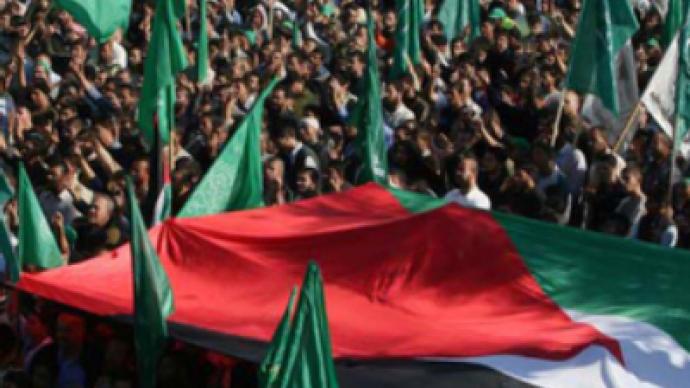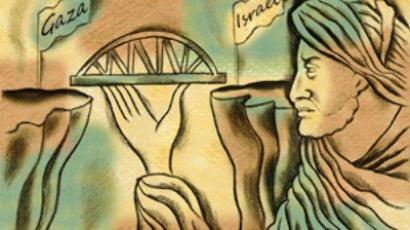The Palestinian political nation

One of the prominent orientalists, Bulgarian diplomat Kiriak Tsonev, says that the Middle East conflict has reached a dead end.
“Israel has turned Palestinians into its own mirror reflection. Sixty-two years ago, Palestinians were mere farmers. Now they are the most educated community in the Middle East. They were pushed out of their villages, they dispersed all over the world, their children received a good education, mastered the skills of the Western political culture, established strong communities for political and economic support and solidarity. It is now a politically educated nation. Apparently, Jews are not the only ones who can do that.”
Tsonev has been following the situation for half a century now. He thinks that Israel’s policies are isolating it from the rest of the world, making it a burden to the West.
“I don’t see the future of Israeli policies. There is no realistic vision. Israel always uses force and usurps more territories. They push Palestinians out of the West Bank. Their idea is to have all Palestinians inside Gaza, surrounded by a strong wall, like in a concentration camp. But they would run out of room, Gaza cannot host 2-2.5 million Palestinians. Palestinians leave and their support in the world grows.”
Two years ago, 25 people broke the Gaza Strip blockade on a small yacht. Today it is 750 people on nine ships. Kiriak thinks that regardless of the outcome of the Freedom Flotilla’s mission, it is a signal that the blockade should be lifted.
“I am here because I see the ongoing injustice towards the blockaded nation. I am taking part in breaking this blockade, just like other politicians and diplomats, because this is an expression of my solidarity with Palestinians living in the Gaza Strip in a very unfortunate situation. Together with the flotilla we are saying – it is time to find a just solution to the Palestinian problem. The blockade does not solve the problem, it only makes it worse.”
Kiriak Tsonev, along with other European envoys was not allowed to join the flotilla by Cypriot authorities, but there are 44 diplomats and politicians on the ships, including a former US Ambassador to Iraq. He thinks that it is inexcusable that the authorities stop politicians by sending police helicopters.
“Influential people from different countries are gathered here. They will go home angry and will put even more energy into telling stories about the situation with Palestinians and calling for political pressure on Israel.”
Tsonev is convinced that the tactic of usurping land, employed by Israel, has no future.
“Israel has been pressuring Palestinians since 1948, provoking them, destroying their homes, usurping their land – as a result we see political mobilization of Palestinians and the world’s solidarity with them. What does the world see? The world sees armed Israelites, including women, and unarmed police of Gaza.”
He notes the irony of the situation: the harder Israel makes it for Palestinians, the stronger they become politically.
“In Oslo, Palestinians recoiled from the principle of extreme military solutions. Israel took advantage of that. Now they separated Palestinians with a wall, and destroyed the airport and the seaport. By building the wall, they take away land from Palestinians. Palestinians are not allowed to fix houses – Israel is destroying their homes and moves the wall forward. Taking land and homes away from Palestinians, Jews leave them no choice but to fight.”
Kiriak Tsoev planned to celebrate his 72nd birthday in Gaza. He took a two-week supply of diabetes medication with him and was ready to persevere through the difficulties of breaking the blockade.
“I have worked in all Arab countries, translated the ‘Arabian Nights’, wrote many books about the Middle East, knew all the leaders and presidents. In 1964, I was at the West Bank when it didn’t experience the problems it faces today. I have never been to Gaza and it was my dream to visit it. It is upsetting that I have been looking for a boat in vain for such a long time, in order to get to the ships. Can you imagine how it must feel for Palestinians who have not seen their land in 62 years?”
Nadezhda Kevorkova, Nicosia, for RT













